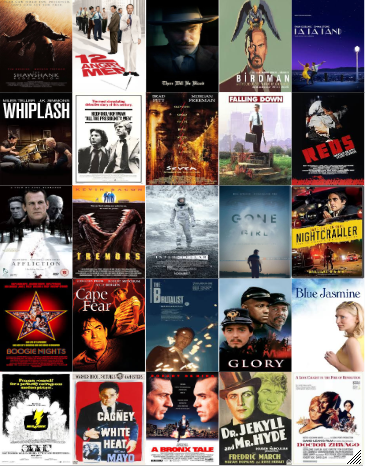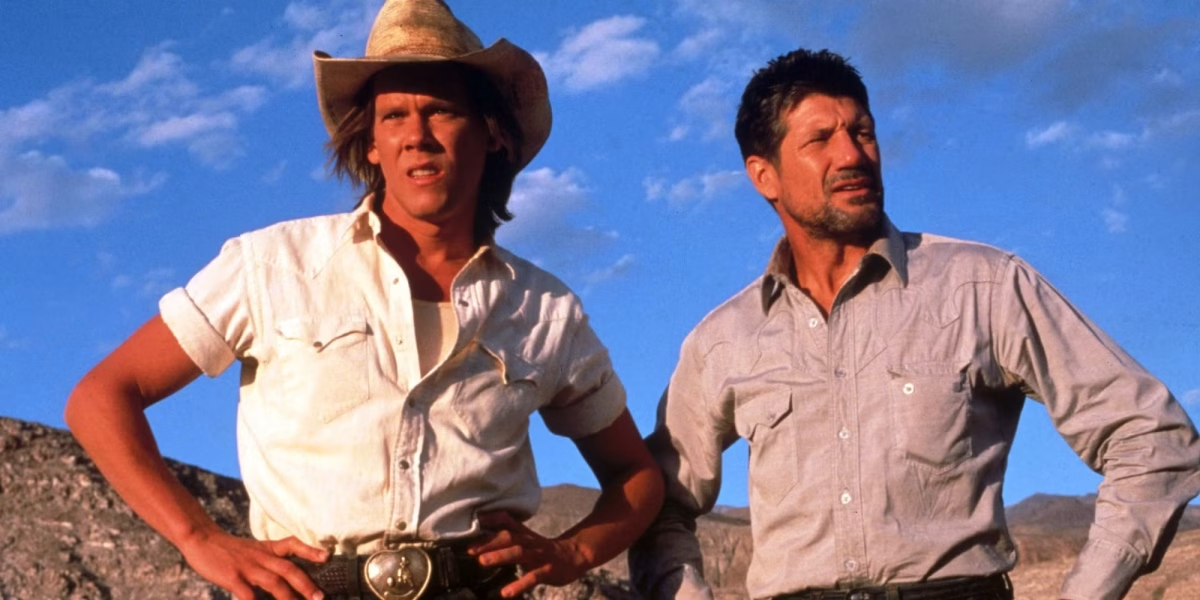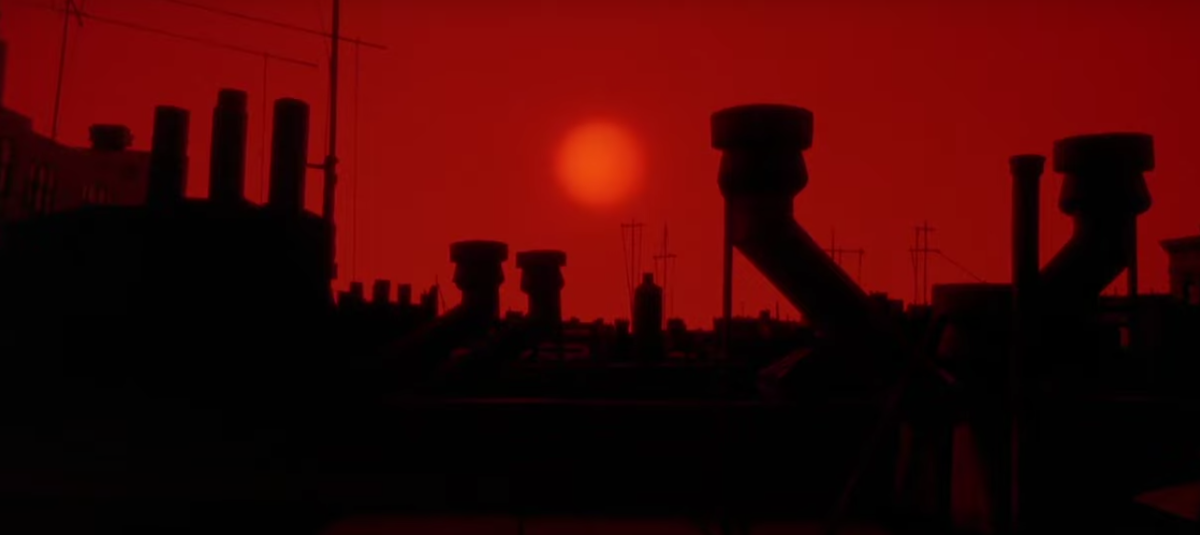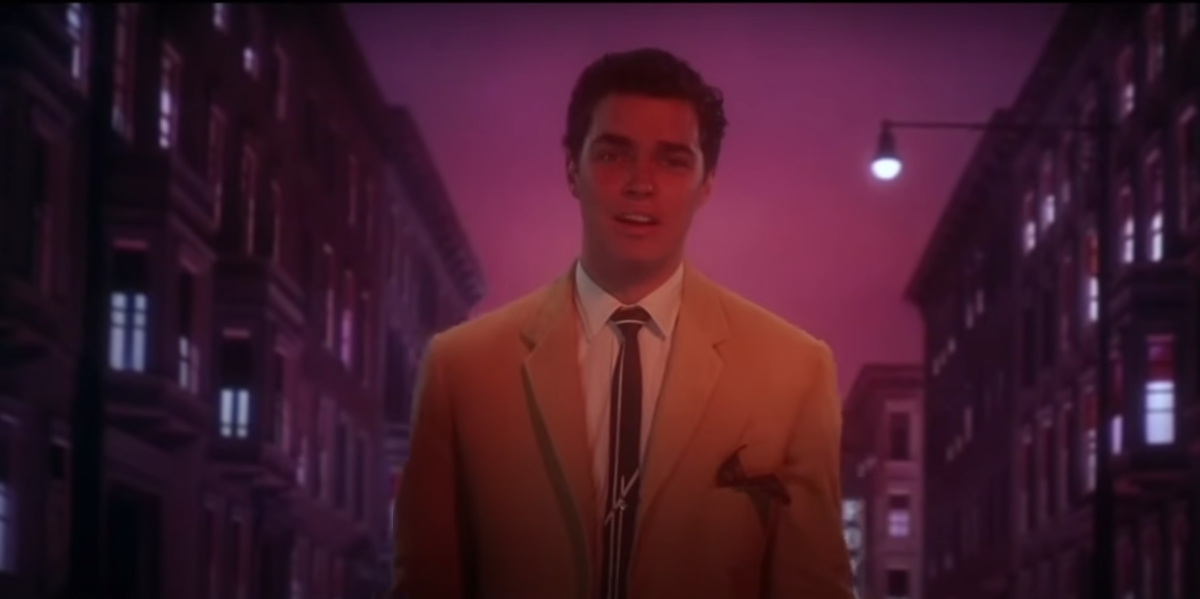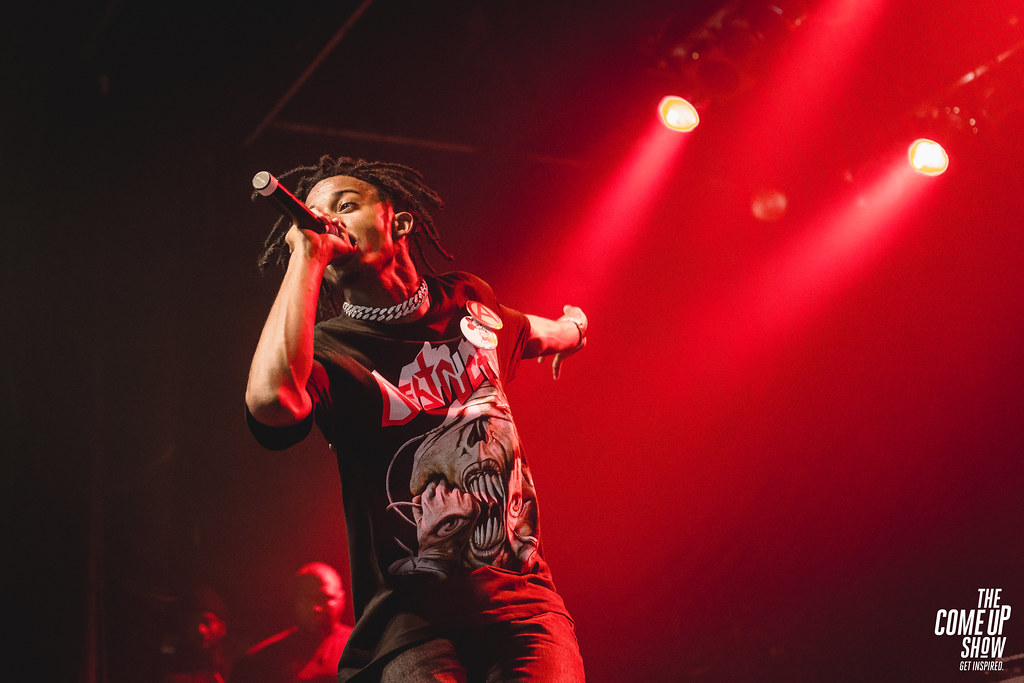The title of this one is pretty brazen, I know. I tried to come up with something clever, like my previous reviews, but I just couldn’t. This movie is not worth being clever or thoughtful because it is neither clever nor thoughtful. It takes a very well known story and beloved musical and does absolutely nothing with it. Despite nearly sixty years of development in filmmaking between the two movies, the remake manages to actually take away from the original.
This isn’t exactly a new concept– just look at every single live action Disney remake. With those movies, however, there’s at least some merit to them. They by no means justify their existence, but one can at least see why they were made. In the case of West Side Story 2021, I genuinely cannot tell you why this film was made. It takes the Sondheim/Bernstein score and trivializes it. It takes the technical groundwork set by the original film’s directors, Robert Wise and Jerome Robbins, and actively spits in its face.
This movie goes past the realm of misunderstanding the original and enters the territory of downright disrespectfulness. Every single choice this remake has made is for the worse—nothing was improved upon, nothing added, only subtracted. This film was so poorly managed that it has led me to genuinely believe Steven Spielberg should stop making them.
Believe it or not, I say all of this without even being a superfan of the original movie or musical. I have absolutely no emotional attachment to West Side Story and prefer to keep my engagement with it as little as possible. No, I am approaching this as someone who prefers not to have their time wasted. I genuinely care about the art of cinema, and in no way can handle seeing it bastardized.
In the false need to appear even handed, I’ll first go over what I actually liked about this movie. The first and probably most significant area of praise I have for this movie is the casting of Rachel Ziegler to play the role of Maria. It’s kind of shocking that casting a Latina actress to play a Latin character is an improvement that this movie had to make. Nothing against the late Natalie Wood, but she wasn’t suited for the role in a movie that features a conflict between racial groups. My second favorite aspect of this movie would have to be the performances of Ariana DeBose and David Alvarez as Anita and Bernardo. They’re no Rita Moreno and George Chakiris; however, they were able to bring their own sense of style and flavor to the characters that made them stand out amongst an otherwise unqualified cast. Finally the cinematography was rather vibrant and colorful with a lot of the sets very well staged and put together. The variety of locations is much bigger than the original. It’s the same cinematographer as Schindler’s List and Saving Private Ryan so this movie was guaranteed to at least be well put together
Now, for the biggest issue with this movie and the origin of much of my derision towards it, Ansel Elgort. He is, what I like to call, a “chronic underacter.” Meaning that when he acts he shows absolutely no expression or emotion. He mumbles his way through his dialogue and it is impossible to tell what he’s thinking or feeling unless he outright states it. Which, as any broadway nerd (like myself) knows, does not land itself well to a musical role. YouTuber Maxwell Greene described Elgort’s performance best, as he “acted like he was thrust into the lead of his High School’s musical a week before they opened and had only ever played Lacrosse his entire life.” Musicals are all about big, grand, displays of emotion. Belting out your feelings for the world to see. It’s a fundamental component of musical theater and when your leading man is incapable of doing this, the whole production begins to suffer.
Every problem with Elgort’s performance becomes painfully obvious in his most important songs “Maria” and “Something’s Coming.” Both of these songs have a major narrative purpose for the early development of Tony. The former serves as a way to not only introduce Tony but to show the contrast in behavior between him and the already established rough and tumble Jets. The latter is a heartfelt declaration of his love for the pretty girl named Maria. Ansel Elgort’s performance manages to fail to communicate both of these ideas to an almost impressive degree.
Starting with “Maria”, his flat, boring, jockish way of singing greatly takes away from what the song is trying to accomplish. He sings and acts almost like he’s better than the song, with a smug “this theater thing is easy” grin planted on his face for the entire duration. His “too cool for school” energy really shows before the song even begins, where he grabs the fence in “frustration” as he looks towards the ground “pensively”. He’s simultaneously trying to be cool while also trying to show emotion and is failing at both. Perhaps theater isn’t as easy as he thinks it is. If it were, he wouldn’t have needed autotune on every, single, note.
From the moment he opens his mouth, the third party assistance for his vocals becomes incredibly obvious. Each word is pronounced and enunciated exactly like the last. Each note is “performed” absolutely perfectly without any margin of error. Those notes are extended at the end, for the exact same amount of time, in the exact same way. Now look, I know that autotune and applications like it aren’t exactly a “new thing.” They’re used in practically every studio recording of a new release in some form or another. Regardless of this, I cannot stand how dependent on it we have begun to become. It feels like the slightest flaw in any vocal performance is run through the editing room for fear of not being perfect which I believe defeats the purpose of singing all together especially in a setting like musical theater where the whole point is emotional expression.
Autotune has absolutely no place in a song like “Maria” where the song’s entire merit is built on how sincere and genuine the singer is. There’s nothing genuine or sincere about post production perfection so the entire point of why the song is there to begin with becomes lost. With a palpable lack of passion from the singer, the score is going to have to do most of the work in the scene.
Spielberg is lucky that Leonard Bernstein was such an excellent composer. If he weren’t, this song, and by extension the entire movie, would absolutely cave in on itself.
This overreliance on the score is felt most in “Maria” at the point when the intended emotions are meant to build upon themselves. It is written and orchestrated in a way where as the music reaches its crescendo the singer’s inflection goes along with it. They put more emphasis on each word as the emotion heightens.
But as we know Ansel Elgort doesn’t do emotion, so instead he decided to just say the words louder. Which, believe it or not, is not the same thing as heightening your emotion. So he ends up leaving the score out to dry as the moment is completely lost. And it’s not like the visuals are helping anything. I would like to meet the guy who decided that the imagery that should be played over one of the main characters’ grand declaration of love is him just walking down the street.
To be fair though, the idea to do this is not isn’t exclusive to this version. This scene in the original played out in similar fashion. However, the directors there recognized that just simply walking down a street is boring. So what they did to compensate was make the visuals interesting. As Tony walked down the street the sky turned into deep swirling shades of pink, red and purple. The colors literally burn and radiate throughout the city casting it in their glow. However they also end up creating a contrast from Tony himself. In this scene Tony is wearing a bright yellow suit which sticks out more when put next to darker colors. Red is commonly associated with love and passion and as the scene progresses the colors slowly overtake his suit. This is ment visually symbolize his passion and love for Maria gradually growing deeper. The directors didn’t just pick colors at random when they put this scene together. They deliberately chose them to help visually communicate the emotions and overall point of the song.
West Side Story 2021 was given an opportunity to do something similar: to use visuals to tell the story, something Steven Spielberg excelled at in the past. Instead though, the whole scene is basked in darkness with the sky a natural, depressing black. All of the light and color in this scene comes from normal street lights shooting down a solitary beam of whiteness. Gone are the beautiful contrasting colors lighting up the New York skyline. This movie is sacrificing obvious chances for visual storytelling for this supposedly needed realism.
For some unfathomable reason modern audiences are turned off from a movie musical when it becomes too unrealistic. So Spielberg in an attempt to keep the target demographic wide, decided to film all of the musical numbers as “realistically” as possible. The brilliant use of color coordination and set design to tell the story is forgone. In its stead is something bland, dark, and lifeless. It takes this incredibly important scene and makes it into nothing more than just a guy walking down the street. (See images 1 – 2)
“Something’s Coming” has all of the same faults as “Maria” but to a much lesser degree. Instead of the song being completely misrepresented and figuratively hacked to pieces, the problem with “Something’s Coming” is that it’s just so boring. There’s really nothing to get mad at with this song because barely anything happens.
Again the visuals in the original weren’t anything show stopping. In fact most of the time he’s kind of just standing there. However, this song, unlike “Maria”, can get away with lackluster visuals. “Somthings Coming” is meant to serve as a prelude for things to come. At the time it occurs, the status quo has yet to be interrupted: life is always as it has been. For some reason, Tony gets this feeling that “somthin great is coming” and that it is only “just out of reach, Down the block, on a beach.” That “something” ends up being Maria, but we don’t know that yet and neither does Tony. It isn’t until after he meets her that his world begins to change when his love for her begins to burn, shaping the city around him.
No, this song isn’t boring due to a lack of interesting visuals. It’s boring because Ansel Elgort doesn’t care. He doesn’t care about the song he’s singing; he’s only singing it out of necessity. Every word has this muted dullness that not even autotune could save.
When Richard Beymer performed the song he was sure he was EXCITED. Every single movement came with a burst of ENERGY. His voice was fast paced and ALIVE. He put effort into portraying the characters EMOTIONS. The song is called “Somethings Coming” because the character is EXCITED for the future. The directors made him acutely aware of WHY THE SONG IS IN THE MOVIE.
Once again the meaning behind the song is completely lost. That’s only because the actor wasn’t aware of it and apparently the director couldn’t be bothered to tell him. So you are left with two absolute wastes of time that serve no narrative function other than their primary one, moving the story along.
Disregarding Ansel Elgort’s performance, the way Tony is portrayed in this movie is kind of strange. It simultaneously wants him to be this cool, edgy bad boy ( an idea that Elgort himself tried his darndest to convey) as well as a nice, reformed and accepting boy who tries to avoid conflict at any cost.
This unnecessary dichotomy with his characterization not only muddles up Tony’s narrative presence, but also the story as a whole. You see in the original movie and Broadway production the reason why Tony left the Jets before is simply because he outgrew the “gang life” that he and Riff had created.
In this movie however, writer Tony Kushner thought that Tony needed more depth. That brings me to the only reason I can fathom as to why this movie was made: to address the less than stellar way minorities, particularly Latin people, were depicted in the original. Now I believe that some of these criticisms have a lot of merit behind them. I want to talk about how these criticisms worked themselves into Tony’s character.
Tony Kushner decided to change the reason Tony was separated from the rest of the Jets. The new reason is because he was serving time in prison for nearly beating someone to death. While their race is not explicitly stated the implication is that the victim was a person of color. This becomes a point of contention between Tony and the Sharks,especially Bernardo who doesn’t want his sister to get mixed up with someone who would do what Tony did.
This leads to what I like to call “Tony’s Crusade”, where he continuously tries to amicably “squash the beef” between him and Bernardo. The decision to rework his character in this way isn’t bad in the short term. It serves to better flesh out Tony as a character while also making his eventual killing of Bernardo feel all the more impactful. In the long term however, it falls on its face, especially at the deaths of Riff and Bernardo, or as it is known in the movie, “The Rumble.”
“The Rumble” is something that is established early in the movie. It’s an organized knock down drag out fight between the Jets and the Sharks to end things once and for all. It’s also a scene that, in the original, reminds us that these are just kids, most of them barely into adulthood. Before I talk about “The Rumble” itself I want to talk about what’s supposed to be its aftermath.
The song “Cool” plays pretty much immediately after “The Rumble.” It’s meant to serve as the Jets’ reaction to the death of their leader. Their naivete comes into play in this scene when they remark that “no one was supposed to get… killed.” They’ve lived without consequence for so long that they didn’t even consider the possibility of death when they incited “The Rumble.” This also plays in great contrast to how much they were talking themselves up in “Tonight Quintet.” They said that they would “rumble em right” and that they were “gonna see Bernardo drop tonight.” To them being in a gang is all about looking cool and hanging out with your friends. None of them realized what could happen if they weren’t careful. This song is them realizing the consequences of their actions and having to face them.
It’s called “Cool” because the Jets are trying to calm themselves down. They’re angry and want to, as they previously said, “tear up the town;” however, things have changed.
They have to constantly remind themselves that this is a different world they’re living in. One without Riff to protect them, one where their actions have consequences. They can’t just do whatever they want anymore because it could turn out disastrous not only for them but for the Jets as a whole. “Cool” is a great song that serves several purposes; it’s written both as a reaction to Riff’s death and a much needed reality check for the Jets.
The “Cool” that we do actually end up getting really isn’t anything to write home about. The choreography is exceedingly boring and uninspired. Instead of the intricate thought out dances that Jerome Robbins won a special Academy Award for, we instead get Tony, Riff, and two other Jets hopping around a dock, seemingly going out of their way to dance as little as possible.
The singing, as to be expected at this point, isn’t much better. Again Ansel Elgort’s vocal performance ends up completely missing the point of the song.
The song itself is sung from the perspective of somebody who’s already “cool.” Their intention throughout the song is to calm the subject down. To accomplish this the singer has to present themselves in an authoritative way and verbally put the subject in their place. However Elgort approaches his song like he’s “cool”, but not cool in a calm and level headed way. It’s cool more in the “I’m awesome, and better than you” sort of way.
It’s basically just another dosage of Ansel Elgort’s smug without the swag way of acting. He tries so hard to look cool that he forgets to BE cool. Instead of the song feeling like it’s coming from a position of authoritative concern it comes off as very preachy and hypocritical especially in this version’s new way of contextualizing his past actions.
Unfortunately Tony’s attempts to deter Riff fall on deaf ears as he is determined to “finish things.”
This finally leads us back to “The Rumble.”
“The Rumble” is the emotional climax of the movie where the lives of the Jets and the Sharks are changed forever. When these kids stop dancing in the street and finally realize the damage they’ve been causing not only to each other but to themselves. An incredibly important scene that sets the tone for the rest of the movie and directly feeds into the ending. In this movie’s attempt to heighten this scene’s tension it only makes it feel more ridiculous.
Here’s how things happened in the first movie.
Originally Riff wasn’t supposed to fight Bernardo. He was meant to fight the comparatively much bigger Ice. They’re about to fight until Tony interjects, and he gets in between them and tries to reason with Bernardo by simply saying “we ain’t got no battle, none of us.” Bernardo, angry and persistent, refuses Tony’s attempts at reason and instead decides to try and fight him. But Tony doesn’t want to fight; he takes blow after blow but doesnt hit back. He almost gets baited into fighting, but he looks down at hands and reminds himself that he doesn’t want this.
Riff, seeing his best friend getting absolutely pummeled, jumps into a fight he wasn’t supposed to be in. He punches Bernardo in the face strong enough to draw blood. The music kicks in, and whether they like it or not the battle is on. Then in a literal flash the stakes are raised once again as both Riff and Bernardo pull out knives they stored in case something like this happens. The score is absolutely perilous as they fight, circling around each other, each lunge and jab is punctuated by a musical cue.
Tony, still trying to mitigate harm as much as possible, constantly throws himself in between them so much to the point where he has to be physically restrained. Riff even has an opportunity to finish Bernardo but Tony breaks free and stops him. The next moment though as Riff runs at Bernardo again is when Bernardo’s knife finds its place in Riff’s heart. Bernardo looks down and realizes what he has done; he’s taken somebody else’s life and he is shocked by it. Tony, wracked with the grief of unintentionally causing this to happen, wretches the knife from Riff’s chest and skewers it into Bernardo’s. Before the scene ends Tony lets out a cry to Maria as he kneels beside the body of his dead friend.
The events in the original movie happen rather quickly, with one event rapidly leading into the next. It’s understandable as to why things escalated in the way that they did. There was no moment of reprieve where characters could clear their heads and think about things for a moment. The avoidability of everything makes the outcome all the more tragic. It works because it consists of a set of unfortunate, believable, and simple circumstances. To complicate things would detract from the impact of the scene all together.
So let’s see how the remake approached this scene.
It starts off similarly to the original: Riff, Bernardo and their respective gangs meet up, ready for the fight to begin. However, instead of just immediately getting to it like what they were all there for, they begin talking. They mention that the fighting ground is covered with salt “for when the streets ice up”. Which to me sounds like a line that was meant more for the audience than the character. Because why exactly would the characters need information on the location they deliberately picked for the fight? Everybody just does a lot of standing around and staring in what I assumed was an attempt to build tension. Much like in the original, Tony shows up, but unlike in the original the fighting still hasn’t happened yet. In fact Riff and Bernardo are still just talking to each other.
Tony and Riff have a brief encounter, one in which Ansel Elgort is again trying to portray himself as a bad boy which inevitably clashes with him trying to diffuse the situation. Instead of Bernardo quickly disregarding Tony’s attempts at amicability and wanting to fight, here it seems like Bernardo is willing to hear him out. Riff interjects his way into the conversation by saying that Tony is “breaking his heart” because he isn’t immediately trying to kill Bernardo.
Bernardo then asks about Tony’s time in prison, asking specifically about the different types of Latin people locked in there with him. When Tony confirms there were several different kinds of people in his prison Bernardo says the most misplaced line in the whole movie “They love locking up us brown guys.”
Now I do understand WHY this line is in the movie. The disproportionate amount of Latin people that are incarcerated in America is ridiculous and I’m willing to assume it was even worse back in the 1950s when this movie is set. However, it really doesn’t have a place in a scene like this where the conflict is meant to be contained. Globalizing this scene detracts from the personal conflict this movie has built itself on, up until now.
He then follows it up by asking why Tony got into prison in the first place. Tony explains that he’s a changed person, but Bernardo accuses him of trying to get himself “a little brown girl” so he feels better about what he did. Again while this is a legitimate point to make, and one that could almost be applied to the original in some capacity, it really has no place in this scene and only serves to drag things out even further. Bernardo begins wailing on Tony who refuses to fight back, much like in the original. Unlike in the original, instead of trying to get out of the way and dodge as best he can, Tony decides to just stand there and allow himself to get punched. It’s an absolutely ridiculous thing to watch and I have no idea what the filmmakers thought they were accomplishing with it.
Then apparently Tony gets hit one too many times and begins to fight back. This again completely misunderstands how tension is supposed to be built. In the original Tony absolutely refuses to fight and when he feels he’s about to he looks down on himself in shame. He doesn’t enact violence until he realizes what inaction has led to. Even then it’s shocking to the audience when he does it. His action feels like it has more weight to it because it was genuinely the last thing he wanted to do.
This film however decided to forgo the gradual development to an emotional climax. Instead they have Tony absolutely wail on Bernardo; in fact, he only stops when he sees Riff’s reaction, this makes absolutely no sense to me. Less than two minutes ago Riff was getting mad at Tony for not trying to kill Bernardo, and now that he is, you’re afraid of what he’s doing? I suppose this was meant to be a way to show how crazy Tony can get, but to me it feels more like being inconsistent with your character.
Tony gets off Bernardo and walks away, but Bernardo wants to finish the fight. He runs towards Tony and, believe me when I say, out of nowhere, a switchblade skids across the floor. Bernardo picks it up and Riff gets tossed one of his own. Tony doesn’t try all too hard to stop this fight. In fact he takes his sweet time walking back over to it.
There’s no moment in which Riff has a chance at Bernardo and Tony stops it, and there’s no establishment of guilt to be paid off. Instead Riff gets thrown over to Tony he wrestles himself out and gets launched directly into Bernardo’s knife. I laughed so hard the first time I saw this, because it’s the most ridiculous thing this movie could have done. To make things worse, Riff doesn’t just immediately drop like he does in the original to reinforce the suddenness of what just happened. Instead he dies like they only die in movies. He slowly walks over to Tony and with a quiver in his voice says that “it’s alright” and asks him to “take the knife out”. He then falls slowly and dramatically in Tony’s arms. It’s so silly I cannot fathom how they intended for someone to take it seriously. Tony then kills Bernardo, but there’s no weight to his actions because he already almost did them. There’s no cry out to Maria or really any remorse for what he’s done. Elgort continues to remain “cool” as the scene’s emotions are sucked away.
The movie completely misunderstands why the original was written in the way it was. The actions happened rapidly with little time to think or talk things out. Here things happen slowly with more than enough time to stop and reflect. Bernardo is willing to listen to Tony, the fighting doesn’t begin before Tony gets there, and there’s a pause in between the two fights. Nothing feels connected to anything else because actions don’t seamlessly flow into each other. It all feels like they had a checklist of things they needed to do and didn’t care how they got to them. All the artistry is lost, all the passion is lost, all the emotion is lost. (See images 3 – 4)
All that’s left is a hollow, joyless experience made by people who simply didn’t care.
There is so much more that I could say about this movie. You probably noticed that I didn’t talk about Rachel Zegler at all. That’s only because I don’t remember her. Despite being one of the two main leads she leaves absolutely no impact on this movie. Her singing is fine, her acting is fine. Am I offended by the casting choice? No. Were there better options? Yes. She was just so painfully mediocre that she left no lasting impact on me.
I could talk about how the song “Gee Officer Krupke” doesn’t make sense anymore because Officer Krupke was rewritten to be a bumbling buffoon instead of a real threat.
I could talk about how the cinematography, while nice, completely misses that “gritty” feeling that works so well in a movie about gang violence. (see images 5 – 8 below)
I could talk about how changing the lyric “He’ll walk in hot and tired, poor dear, dont matter if he’s tired as long as he’s here” to “He’ll walk in hot and tired, so what?, dont matter if he’s tired as long as he’s hot”. Robs the viewer of clever foreshadowing of Bernardo’s death and primes them for things to come. (see images 9 – 10 below)
I could talk about how changing Anita’s line of “Puerto Rico, my heart’s devotion, let it sink into the ocean. Always the hurricanes blowing, always the population growing” to “Puerto Rico, you lovely island, island of tropical breezes. Always the pineapples growing and the coffee blossoms blowing” doesn’t make any sense, because for the rest of the song she is talking about how much better America is than Puerto Rico. So why would she start off praising Puerto Rico if she spends most of the time trashing it?
I could even say that Rita Moreno’s character doesn’t make any sense in relation to the Jets. She is Puerto Rican and she practically raised them, yet they are still racist towards the Sharks.
I could approach this movie from several angles but I won’t because I don’t care. Why should I? Especially when the creators themselves apparently didn’t care either. The feeling is mutual between all parties
West Side Story 2021 ranks third amongst my least favorite movies. Only behind Space Jam: A New Legacy, a corporate shell of a movie whose only intentions were to advertise other Warner Brothers products and to shove even more money into the ever-growing pockets of Lebron James. As well as one other, an absolute insult to theater fans across the world. A movie so poorly handled that only the man behind Cats 2019 could manage it. An adaptation of my absolute favorite broadway musical Les Misérables. Don’t worry there will be an article based around it so you can, like always, get to know my opinion in excruciating detail.
Before I leave I just want to apologize for the lack of stuff last year. I kinda only wrote the two things and then went silent. For some reason it took a while for me to get that fire in my belly again. I hate to say it but I think this year is going to be pretty similar. Remember how La La Land was over ten pages of me gushing about a movie I love? Well think of Les Misérables as its anthesis. I don’t know how much content I can really get out because I am going to be spending most of my time working on that. If you thought I was angry here or that this was incredibly long, just wait until we get to a musical I actually care about.
Until then
“In reel time”
Tristan Good
I give this movie is a 2/10
I want to quickly thank my mom whom I suppose is my “editor”. Without her this review, and past ones, would have come out a complete mess.





















